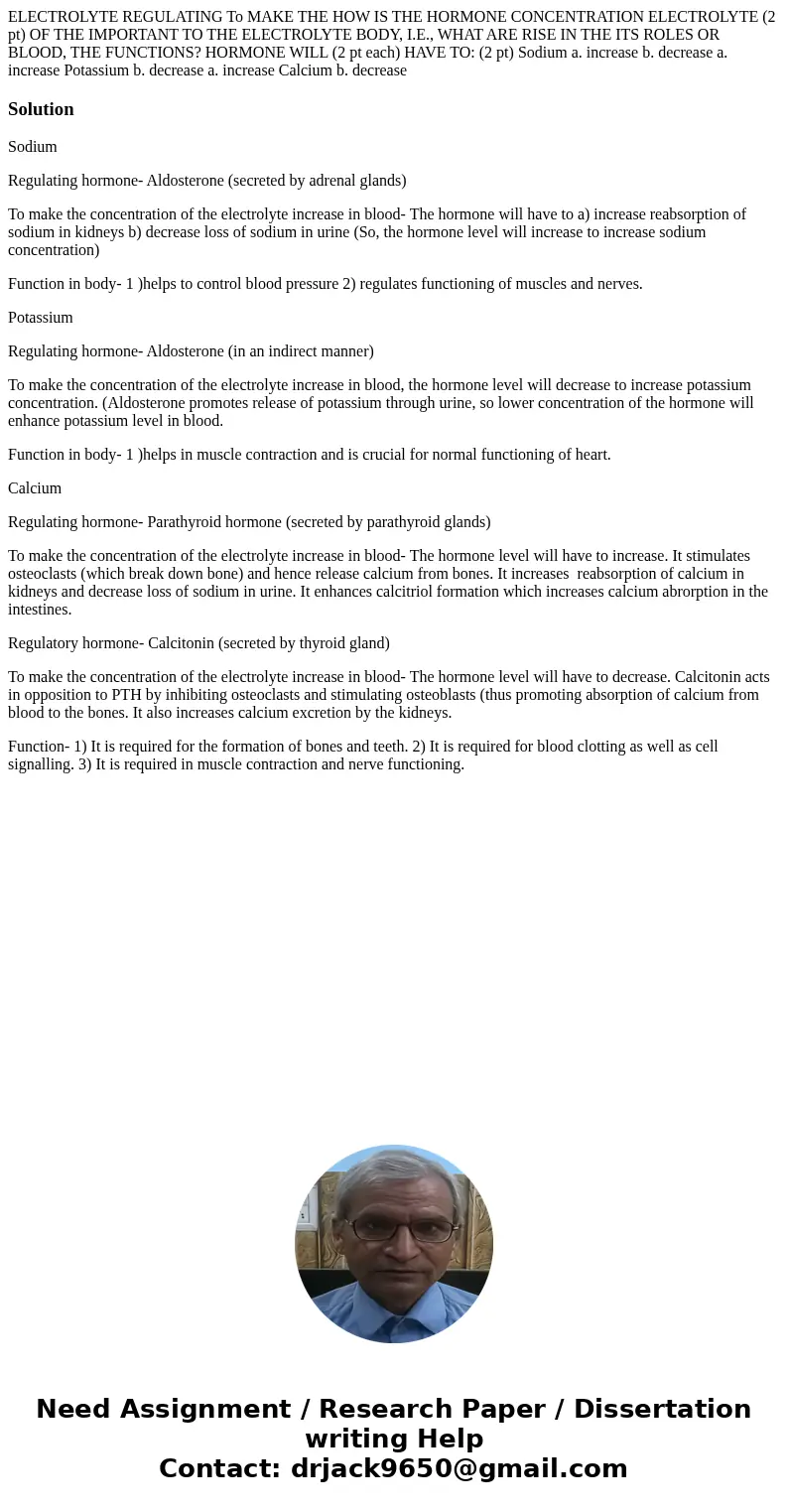ELECTROLYTE REGULATING To MAKE THE HOW IS THE HORMONE CONCEN
Solution
Sodium
Regulating hormone- Aldosterone (secreted by adrenal glands)
To make the concentration of the electrolyte increase in blood- The hormone will have to a) increase reabsorption of sodium in kidneys b) decrease loss of sodium in urine (So, the hormone level will increase to increase sodium concentration)
Function in body- 1 )helps to control blood pressure 2) regulates functioning of muscles and nerves.
Potassium
Regulating hormone- Aldosterone (in an indirect manner)
To make the concentration of the electrolyte increase in blood, the hormone level will decrease to increase potassium concentration. (Aldosterone promotes release of potassium through urine, so lower concentration of the hormone will enhance potassium level in blood.
Function in body- 1 )helps in muscle contraction and is crucial for normal functioning of heart.
Calcium
Regulating hormone- Parathyroid hormone (secreted by parathyroid glands)
To make the concentration of the electrolyte increase in blood- The hormone level will have to increase. It stimulates osteoclasts (which break down bone) and hence release calcium from bones. It increases reabsorption of calcium in kidneys and decrease loss of sodium in urine. It enhances calcitriol formation which increases calcium abrorption in the intestines.
Regulatory hormone- Calcitonin (secreted by thyroid gland)
To make the concentration of the electrolyte increase in blood- The hormone level will have to decrease. Calcitonin acts in opposition to PTH by inhibiting osteoclasts and stimulating osteoblasts (thus promoting absorption of calcium from blood to the bones. It also increases calcium excretion by the kidneys.
Function- 1) It is required for the formation of bones and teeth. 2) It is required for blood clotting as well as cell signalling. 3) It is required in muscle contraction and nerve functioning.

 Homework Sourse
Homework Sourse